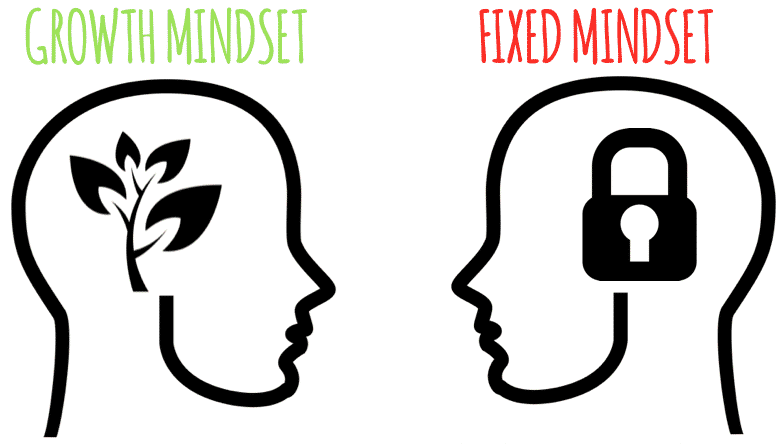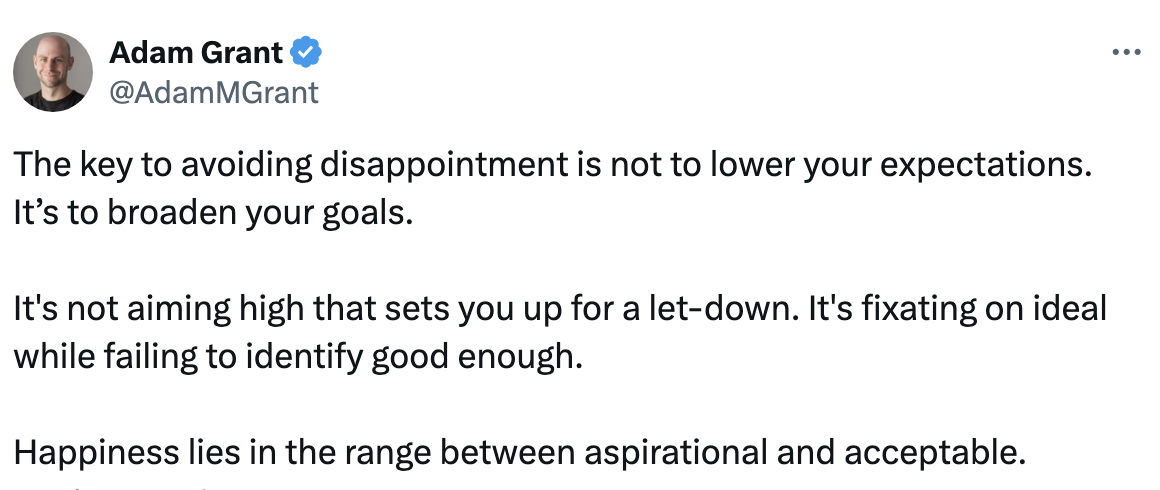About the Importance of Character Skills
 jorzel
jorzel
If you asked people about the traits they value the most, many would likely highlight being intelligent, smart, and bright. If they have kids, science genius is an ideal that could be strived for. There's a tendency to overestimate cognitive abilities while underestimating the importance of character skills, which are often the real foundation of long-term success.
Growth mindset - a change is possible
A growth mindset is fundamental to any development. It embodies the belief that change and improvement are possible and that we can enhance our abilities in any field through effort and perseverance. This mindset does not imply that success is guaranteed in all activities we undertake, but rather that both cognitive and character skills can be cultivated gradually with the right strategies.
It is quite a common conviction that our character is stable and unchangeable. While personality is indeed a key part of our identity, qualities like perseverance, confidence, and resilience are often seen as inherent traits rather than skills that can be developed. People tend to think they either possess these qualities or they don't. In reality, all these character abilities can be trained and improved, provided we employ effective strategies to cultivate them.
Motivation creates persistence
When researchers looked at the ability to persist in various domains - from cycling to math to calling for donations - one factor kept popping up. Those who persisted had different goals. They weren't driven by fear, or guilt, or pressure. They didn't keep working in pursuit of money. They were pursuing a goal because it aligned with who they were and brought them enjoyment and contentment. They were choosing to do the work, not being forced to. And they were having success.
S. Magness "Do Hard Things"
Researchers of motivation like Steve Magness (Do Hard Things book) and Daniel Pink (Drive book) agree that intrinsic motivation can be a powerful source of long-term drive to achieve goals. When our goals align with our aspirations, we do not require external stimuli to pursue them.
You might question whether external motivation is ineffective. Indeed, we often see that pressure can yield results. However, these are typically short-term successes. The carrot-and-stick method works, but only as long as the stimulus is present. Without supervision, motivation diminishes. Additionally, prolonged external pressure can cause overwhelming stress and even burnout. While it can achieve success, this approach is inherently fragile. Contiguous rewards or punishments can indeed yield short-term gains but often result in long-term damage to intrinsic motivation. This occurs because reliance on external motivators can diminish our internal drive over time.
source
Discovering intrinsic motivation is indeed a challenging effort. It requires us to determine what holds importance for us, what endeavors are worth our effort, how we choose to spend our time and the kind of person we aspire to become. If we understand our "whys," intrinsic motivation is likely already present.
Perseverance - focus on the process
Thomas M. Sterner argues in his excellent book The Practicing Mind that patience and perseverance may be developed by cultivating a love of the process rather than goals.
Focus on Each Part of the Process: Rather than fixating on the end result, concentrate on refining each component of the process separately. Sometimes you need to divide an activity into smaller parts that are easier to maintain.
Withhold Judgment: Avoid making judgments, as they often lead to frustration. Instead, focus on the task at hand without evaluating its success or failure. You have to learn to traverse your comfort zone without judgment
Use the Final Goal as a Rudder: While the ultimate goal serves as a direction for your practice sessions, do not use it as the sole indicator of your progress or success. Emphasize assessing and improving the process. Your goal should only tell whether you need to change something to have a better trajectory.
Avoid Hurrying: Rushing through tasks to reach a goal can lead to sloppy and ineffective practice sessions. Avoid the "Get this over with" Mentality. This mindset causes frustration and interferes with effective practice.
Prefer Process Over Instant Gratification: Focus on long-term satisfaction rather than seeking immediate rewards.
A process mindset allows for enjoyment during activities without solely relying on achieving the end goal. It can reduce daily stress and massively enhance the quality of your experiences.
Resilence - finding meaning in discomfort
Adam Grant in his inspirational book Hidden Potential claims that great learners got comfortable with being uncomfortable. Failure and the discomfort it brings are integral to the learning process. Limiting oneself to playing only to strengths denies the chance to grow in areas of weakness. Resilient individuals recognize mistakes not as failures but as valuable indicators for personal growth.
When we explore instead of avoid, we are able to integrate the experience into our story. We're able to make meaning out of struggle, out of suffering. Meaning is the glue that holds our mind together, allowing us to both response and recover.
S. Magness "Do Hard Things"
Enduring discomfort becomes more manageable when the activity holds significant personal meaning to us. Individuals with intrinsic motivation tend to be more resilient because they have a sense of mission. However, their goals usually are not rigid. They can pursue their aspirations through various endeavors and are adept at re-engaging and setting new goals after experiencing failure.
Therefore, resilience can stem from:
accepting discomfort as a normal and potentially beneficial part of the learning process
a sense of doing something important for us. Even if some goals fail, we can always pivot to others that still fulfill our objectives.
Confidence comes from competence
Jonathan Haidt, when talking with Becky Kennedy about his recent book The Anxious Generation mentioned that we should not teach kids to be self-esteemed. Of course, we should support our kids and make them believe that they can be successful. However, confidence and self-esteem should be only a by-product of competence.
Confidence derived from actual accomplishments is more robust and enduring. It isn't easily shaken by failures or criticism because it's based on a history of overcoming obstacles and achieving goals.
Whether it pertains to your development or that of your children, gaining confidence involves a combination of opportunities for learning and the necessary support to overcome obstacles on the path to competence.
As we mentioned at the very beginning, people often gravitate toward cognitive skills because they appear more impressive at first glance. In contrast, character skills operate more subtly, working behind the scenes. Despite being less immediately visible, these skills play a crucial role in personal growth and even contribute to the development of cognitive abilities. Character skills deserve more attention and emphasis in our personal development efforts.
Subscribe to my newsletter
Read articles from jorzel directly inside your inbox. Subscribe to the newsletter, and don't miss out.
Written by

jorzel
jorzel
Backend developer with special interest in software design, architecture and system modelling. Trying to stay in a continuous learning mindset. Enjoy refactoring, clean code, DDD philosophy and TDD approach.


